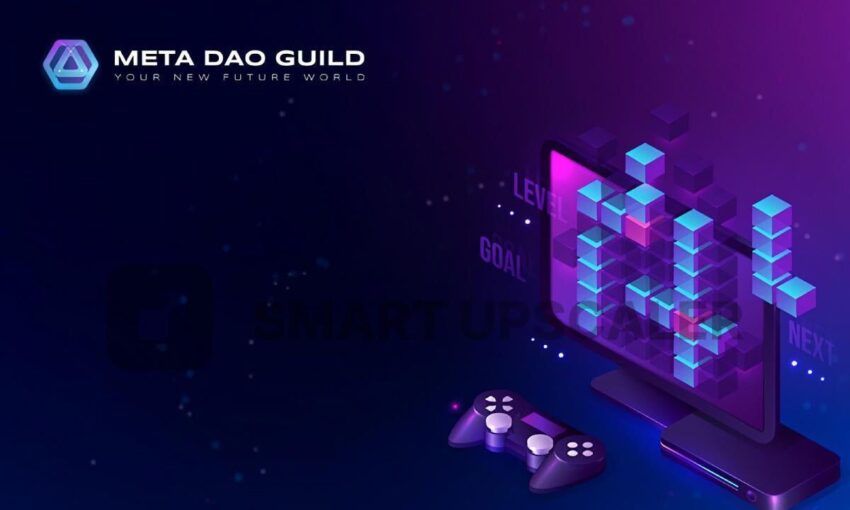Online game guilds have existed since games first appeared on the internet. But with the spread of games on the blockchain, these communities have become a point of interest not only for players, but also large investors.
We’ve tried to determine what role guilds play in blockchain games, why they are attracting millions of dollars from venture capitalists, and how an ordinary user can make money off this new trend.
What are gaming guilds?
Guilds, or clans, are communities of players in online multiplayer games. They come together to help each other achieve certain objectives in the game and fight stronger players.
Guilds come in different types and sizes. Some unite players who are familiar with each other offline, while others have hundreds and thousands of members from different parts of the world.
The emergence of large gaming guilds dates back to the early 2000s, when online multiplayer role-playing games began to develop and spread all over the world thanks to the expanded reach of the internet, increasing bandwidth and speeds, and general improvements in technology.
The cradle of gaming guilds can be safely considered to be the game EverQuest, which was released in 1999 by the American company Sony Online Entertainment. After a couple of years, it became clear that the guild was more than just a group of players united to complete tasks.
In addition to the gameplay itself, guild members actively interacted with each other by chatting in chat rooms and arranging offline meetings.
Guilds are now present in almost all popular multiplayer online games – World of Warcraft, Final Fantasy, Counterstrike, Roblox, Dungeon, Ragnarok, Lost Ark, RuneScape, to name a few.
Many games that were created 10-15 years ago continue to exist on the market largely thanks to their existence. This is because these games also fulfil a social function – they have become platforms where thousands and even millions of like-minded people meet to communicate. For example, the number of active users in World of Warcraft exceeds one million people per day, and this veteran of the gaming industry has more than 117 million players in total.
Guilds in blockchain games
Guilds have seen a new round of development since the emergence of games based on blockchain. This is because these games’ business models significantly differ from those used in previous online multiplayer games.
The most popular blockchain games now use a Play-to-Earn economic model, which makes it possible for users to receive rewards for gaming activity in the form of blockchain game tokens that can later be converted into another cryptocurrency and withdrawn as fiat. Thus, blockchain games give users the opportunity not only to have a good time playing but also to earn real money.
This evolution in gaming business models has also led to a change in the role played by guilds, which have become key participants in games’ internal economies.
Guilds contribute to users’ gaming experience in a variety of ways, from helping newcomers learn the game faster to providing access to characters and attributes that are necessary to overcome difficult challenges in the game.
“Guilds improve liquidity within the game, contribute new capital, and stimulate player participation. Among the most serious problems that guilds help overcome in multiplayer blockchain games is high entry barriers,” explains Roman Goryunov from Meta DAO Guild, which is developing a multifunctional platform for blockchain game players.
With MMO games, players only needed to buy a subscription to enter, but, in blockchain games, non-interchangeable game tokens (NFT) act as an analog of subscriptions, granting rights to certain characters, game items, or space in the metaverse, he notes.
For example, to enter one of the most famous and popular blockchain games, Axie Infinity, a player needs to buy three pet characters. In 2021, the cost of a gaming NFT in Axie Infinity reached $220, which means that a prospective player needed to pony up about $660 just to start.
“Many blockchain game players live in developing countries. For them, these games present an opportunity to earn income and improve their lives, but the high cost of the NFTs required to enter turns out to be an insurmountable barrier for them,” Goryunov added.
Guilds help solve this problem by making it possible for new players who can’t afford to buy game NFTs to rent them. The income from gaming activity is divided between the owner of the NFT or guild and the player. For example, Meta DAO Guild’s rental service is organized as follows: an NFT owner registers on the platform and selects a player from a database that contains a list of scholars (players trained by Meta DAO Guild).
When renting out an NFT, its owner shares part of the gaming income with the player. The tenant (player) gets access to the gaming NFT without any investment.
With the help of smart contracts, the Meta DAO Guild serves as a guarantor that ensures NFT owners will share profits with the tenant players. In order to avoid cheating, landlords renting out an NFT via Metarent must deposit a certain amount in an account, which serves as a guarantee that tenant players will be paid for their work.
How are Guilds organized in blockchain games?
Guilds in blockchain games are usually organized as decentralized autonomous organizations. Members who own the guild’s internal tokens have the right to vote on issues important to the community.
Guild tokens are also involved in the economic processes and services that the guild provides to its members.
The services provided by guilds are not limited to renting out gaming NFTs. In addition to its P2P rental platform, the Meta DAO Guild is also developing services such as:
- Scholarship — a training platform for guild member players and a system for renting guild-owned NFTs
- MetaExchange — a platform for exchanging NFTs from different games
- DAO Launchpad — a decentralized fund for venture investments in GameFi projects
The first round of sales for Meta DAO Guild‘s tokens (MDGG) will begin on February 22. Owners of MDGG will be able to stake tokens with the help of the DAO Launchpad venture fund, giving them the same opportunities to invest in promising NFT games as large investors.
At present, it’s usually impossible for ordinary people to get into a particular project from the very beginning. Only large investors and venture funds generally have the opportunity to reap huge profits by getting in on the ground floor.
But DAO Launchpad gives small investors the opportunity to buy GameFi project tokens before they are made available to the public. Among other advantages, these community members gain access to the games themselves at the alpha and beta testing stage, as well as the opportunity to purchase gaming NFTs.
Venture Capital enters the arena
Thanks to their new role in the economics of blockchain games, guilds have become an object of interest for large venture capital investors. Here are just a few of the most famous examples of gaming guilds receiving venture capital over the past six months:
- Venture accelerator Brinc and Animoca Brands, an operator of NFT games, announced the launch of a Guild Accelerator Program to promote GameFi guilds, with a support fund amounting to $30 million.
- Andreessen Horowitz (a16z), a well-known Silicon Valley venture fund, and a group of other investors invested $4.6 million in Yield Guild Games, which focuses on popularizing P2P games and training new players in Southeast Asia, mainly in the Philippines.
- The Avocado Guild has raised $18 million from Animoca Brands and Three Arrows Capital.
“The intersection of cryptocurrencies and gaming is one of the most exciting and fastest-growing areas in the technology sector,” explained Arianna Simpson, a General Partner at Andreessen Horowitz.
This growth is due to the fact that, in blockchain games, “value is concentrated in the hands of players and the community, not gaming platforms,” she says.
Of course, venture capitalists’ main goal is not so much to support the players as to make a profit from a new portfolio investment. In the case of gaming guilds, large investors quickly saw the potential for growth, since the price of guild tokens will inevitably rise as liquidity grows and the number of participants increases.
However, for blockchain gaming guilds, the main target audience remains ordinary users, who are the driving force behind this new market. And it is thanks to these guilds that novice players can now become full participants in the gaming industry and earn thousands of tokens, not to mention welcome additional income, in the medium and long term.
Disclaimer
This article is sponsored content and does not represent the views or opinions of BeInCrypto. While we adhere to the Trust Project guidelines for unbiased and transparent reporting, this content is created by a third party and is intended for promotional purposes. Readers are advised to verify information independently and consult with a professional before making decisions based on this sponsored content. Please note that our Terms and Conditions, Privacy Policy, and Disclaimers have been updated.


